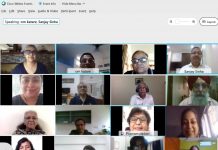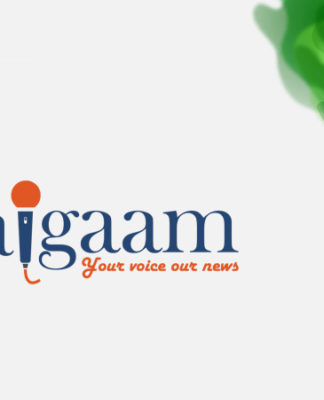In 2018 Facebook has been through rough waters and there’s nothing secret about it. Facebook has been in the limelight for all the wrong reasons this year and the company very well accepts its mistake and says is working on resolving the issues.
For the social media giant, 2018 started off with the whole scandal around Cambridge Analytica (CA) it was later followed by the issues related to the spread of misinformation and hate speech across the platform. CA served as Donald Trump’s data operations team during the 2016 election. The firm harvested more than 50 million user profiles on Facebook, without any consent from users. It was a data breach like no other, and Chief Executive Officer of Facebook Mark Zuckerberg accepts that the social media platform was at fault, but believes that the company is working hard to improve and will be better in the years to come.
With 2018 almost coming to its closure, Zuckerberg pens down a Facebook post explaining how the year has been for him and Facebook and what the company is doing to gain back the lost trust of the users. Zuckerberg started the post by saying the struggles he has been through this year. Even after accepting that Facebook was wrong in a lot of ways Zuckerberg still seems to be proud of the progress that the company has made in the last few months.
“For 2018, my personal challenge has been to focus on addressing some of the most important issues facing our community — whether that’s preventing election interference, stopping the spread of hate speech and misinformation, making sure people have control of their information, and ensuring our services improve people’s well-being. In each of these areas, I’m proud of the progress we’ve made,” he noted.
We’re a very different company today than we were in 2016, or even a year ago. We’ve fundamentally altered our DNA to focus more on preventing harm in all our services, and we’ve systematically shifted a large portion of our company to work on preventing harm. We now have more than 30,000 people working on safety and invest billions of dollars in security yearly.
To be clear, addressing these issues is more than a one-year challenge. But in each of the areas I mentioned, we’ve now established multi-year plans to overhaul our systems and we’re well into executing those roadmaps. In the past we didn’t focus as much on these issues as we needed to, but we’re now much more proactive.
That doesn’t mean we’ll catch every bad actor or piece of bad content, or that people won’t find more examples of past mistakes before we improved our systems. For some of these issues, like election interference or harmful speech, the problems can never fully be solved. They’re challenges against sophisticated adversaries and human nature where we must constantly work to stay ahead. But overall, we’ve built some of the most advanced systems in the world for identifying and resolving these issues, and we will keep improving over the coming years.
We’ve made a lot of improvements and changes this year, and here are some of the most important ones:
For preventing election interference, we’ve improved our systems for identifying the fake accounts and coordinated information campaigns that account for much of the interference — now removing millions of fake accounts every day. We’ve partnered with fact-checkers in countries around the world to identify misinformation and reduce its distribution. We’ve created a new standard for advertising transparency where anyone can now see all the ads an advertiser is running to different audiences. We established an independent election research commission to study threats and our systems to address them. And we’ve partnered with governments and law enforcement around the world to prepare for elections.
For stopping the spread of harmful content, we’ve built AI systems to automatically identify and remove content related to terrorism, hate speech, and more before anyone even sees it. These systems take down 99% of the terrorist-related content we remove before anyone even reports it, for example. We’ve improved News Feed to promote news from trusted sources. We’re developing systems to automatically reduce the distribution of borderline content, including sensationalism and misinformation. We’ve tripled the size of our content review team to handle more complex cases that AI can’t judge. We’ve built an appeals system for when we get decisions wrong. We’re working to establish an independent body that people can appeal decisions to and that will help decide our policies. We’ve begun issuing transparency reports on our effectiveness in removing harmful content. And we’ve also started working with governments, like in France, to establish effective content regulations for internet platforms.
For making sure people have control of their information, we changed our developer platform to reduce the amount of information apps can access — following the major changes we already made back in 2014 to dramatically reduce access that would prevent issues like what we saw with Cambridge Analytica from happening today. We rolled out new controls for GDPR around the whole world and asked everyone to check their privacy settings. We reduced some of the third-party information we use in our ads systems. We started building a Clear History tool that will give people more transparency into their browsing history and let people clear it from our systems. And we’ve continued developing encrypted and ephemeral messaging and sharing services that we believe will be the foundation for how people communicate going forward.
For making sure our services improve people’s well-being, we conducted research that found that when people use the internet to interact with others, that’s associated with all the positive aspects of well-being you’d expect, including greater happiness, health, feeling more connected, and so on. But when you just use the internet to consume content passively, that’s not associated with those same positive effects. Based on this research, we’ve changed our services to encourage meaningful social interactions rather than passive consumption. One change we made reduced the amount of viral videos people watched by 50 million hours a day. In total, these changes intentionally reduced engagement and revenue in the near term, although we believe they’ll help us build a stronger community and business over the long term.
I’ve learned a lot from focusing on these issues and we still have a lot of work ahead. I’m proud of the progress we’ve made in 2018 and grateful to everyone who has helped us get here — the teams inside Facebook, our partners and the independent researchers and everyone who has given us so much feedback. I’m committed to continuing to make progress on these important issues as we enter the new year.
I’m also proud of the rest of the progress we’ve made this year. More than 2 billion people now use one of our services every single day to stay connected with the people who matter most in their lives. Hundreds of millions of people are part of communities they tell us make up their most important social support. People have come together using these tools to raise more than $1 billion for causes and to find more than 1 million new jobs. More than 90 million small businesses use our tools, and more than half say they’ve hired more people because of them. Building community and bringing people together leads to a lot of good, and I’m committed to continuing our progress in these areas as well.





































